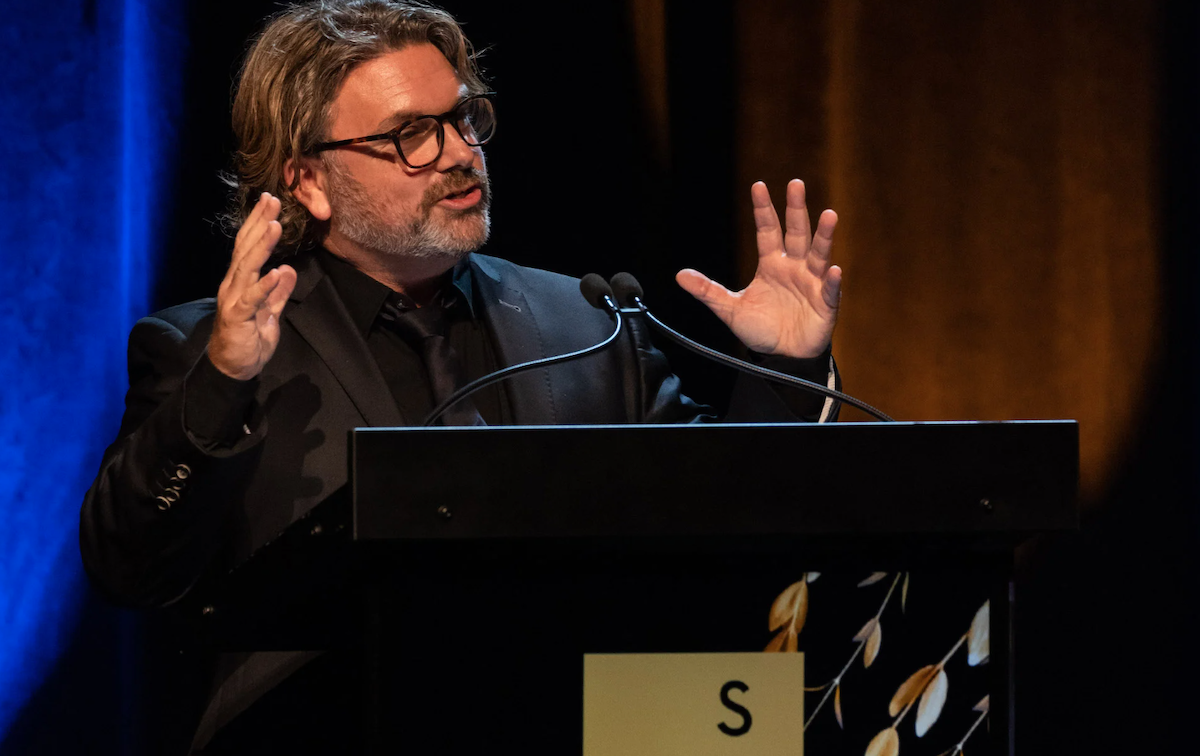Screen Producers Australia (SPA) has come out swinging in a bid to refute some “exaggerated claims” being made by the streaming services.
SPA implied that streaming services, such as Netflix, Stan, Prime Video and Disney Plus, were increasingly panicked as they faced the prospect of regulation and local content quotas.
In a bid to counteract these claims, SPA CEO Matthew Deaner (pictured above), said it was important to have the debate based on facts, and released SPA’s “Facts and Myths Document”.
He said much of the debate is being muddied by the streaming services implying that there would be “unintended consequences” to any legal shifts.
“It is important to have the facts in this debate and not be frightened of the mysterious ‘unintended consequences’ that we hear so much about,” he said.
“The fact is this regulation is well overdue.”
The “Facts and Myths Document” seeks to tackle some of this alleged misinformation head on, he added.
“Streaming platforms are making much of their ‘voluntary’ investment in Australian stories.
“We know that some of this is motivated by a recognition that until quite recently, their efforts have been extremely poor, and they are now keen to tell the best story possible about their investment.
“However, the latest ACMA data shows that despite deriving revenues estimated by PWC to reach around $2.5 billion per year in 2023 from Australian subscribers, SVOD investment in local content from Amazon Prime, Disney Plus, Netflix and Stan amounted to $103.76 million in 2020-21.”
Deaner said it was a “cause for concern” that the streaming giants offer little transparency on their numbers and that investment in children’s drama and non-drama programs is declining.
Any increased investment, he contended, was going towards acquiring old catalogue titles and successful bids for sporting rights, not local Australian productions.
The ACMA data shows that streamers acquired 1,743 programs while only commissioning or co-commissioning 22 new Australian programs, SPA said.
Deaner said it was only fair to the Australian people and the local industry that there is a minimum investment obligation, particularly as the companies take advantage of significant and generous tax rebates and incentives, and use the country’s studios, NBN, talent and expertise.
“The whole purpose of any regulation is to ensure that Australian audiences get a diversity of high-value cultural content, made here as well as globally. The vital regulation would also provide some certainty to a vulnerable, important and high-risk Australian industry,” he said.
“The Australian screen industry, with varying levels of local content regulation, has served us well so far and created iconic, and culturally significant titles, that tell our unique stories.
“We cannot celebrate this without ensuring that current and future Australians enjoy the same cultural experience, and that regulation keeps pace with the new digital platforms.
“Compared to the U.S. and the U.K., Australia is a small player in the global English-language screen market. Without minimum investment requirements in local content, market dynamics and cost pressures dictate that we would likely see very few of our own stories on screen. Without minimum regulation, these stories would be at the whim of global businesses and not a reflection of our own cultural needs and priorities.”
Any regulation, he added, would not even be world-first.
“Australia is not alone in recognising the need to act to regulate streaming platforms. There are various frameworks in place across many territories and countries with comparable market structures and industry qualities such as Canada, France and Italy offer best practice examples of frameworks that will benefit both our sector and our audiences,” he said.































